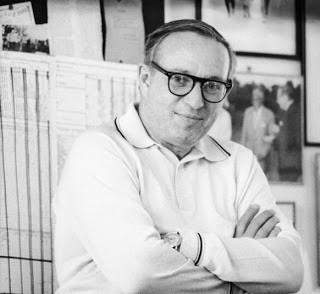Carl Foreman (Carl Foreman)

Born in Chicago, Illinois, to a working-class Jewish family, he was the son of Fanny (Rozin) and Isidore Foreman. He studied at the University of Illinois. As a student in the 1930s, he became an advocate of revolutionary socialism and joined the American Communist Party. After graduating from university, Carl Foreman moved to Hollywood where he used his writing talents and training to work as a screenwriter. From 1941 to 1942, he was involved with writing three films but his career was interrupted by service in the United States military during World War II. Returning to writing commercial scripts, by the end of the 1940s, Foreman had become one of the top writers in Hollywood whose successes included the 1949 Kirk Douglas film Champion for which Foreman received an Academy Award nomination. In 1950, he adapted Brian Hooker’s English translation of Edmond Rostand’s Cyrano de Bergerac for the 1950 film version, which starred Jose Ferrer, and for which Ferrer won the Academy Award for Best Actor. In 1951, during production of the film High Noon, Carl Foreman was summoned to appear before the House Committee on Un-American Activities (HUAC). He testified that he had been a member of the American Communist Party more than ten years earlier while still a young man but had become disillusioned with the Party and quit. As a result of his refusal to give the names of fellow Party members, Foreman was labeled as an “uncooperative witness” and blacklisted by all of the Hollywood studio bosses.
Carl Foreman was the screenwriter of High Noon, a film released in 1952 that is seen by some as an allegory for McCarthyism. The Western film is considered an American classic and was No. 27 on American Film Institute’s 100 Years, 100 Movies, and has been selected for preservation in the United States National Film Registry. This would be the last film he would be allowed to work on by a Hollywood studio for the next six years. High Noon, the film that was Foreman’s greatest screenwriting accomplishment, made no mention of him as associate producer but did credit him for the screenplay, and he did receive an Academy Award nomination for his script from his fellow members of the Academy of Motion Picture Arts and Sciences. Unemployed, Foreman and some others who had also been blacklisted such as Ring Lardner, Jr. moved to England where they wrote scripts under pseudonyms that were channeled back to Hollywood. In 1956 he co-wrote the screenplay for the equally acclaimed The Bridge on the River Kwai with fellow blacklisted writer Michael Wilson. Based on the novel by Pierre Boulle, the two were not given screen credit and the Academy Award for Writing Adapted Screenplay went to Pierre Boulle, who did not speak English. This was only rectified posthumously in 1984 and his name was added to the award.
In addition to his writing of screenplays, Carl Foreman produced ten films, including both producing, writing, and directing 1963’s anti-war epic The Victors, filmed entirely in the United Kingdom. He also produced and scripted the 1961 smash hit World War II blockbuster The Guns of Navarone, starring Gregory Peck, David Niven, and Anthony Quinn; it remains one of his most popular pictures. He is credited as “presenter” on the smash hit 1966 film Born Free, and both presented and produced its (unsuccessful) sequel, Living Free in 1972. In 1965, he was made a governor of the British Film Institute, serving until 1971. In 1970, Foreman was made a Commander of the Order of the British Empire. Such is his influence on the British film industry, that from 1998 to 2009 there was a British Academy Film Award named in his honor; the Carl Foreman Award for the Most Promising Newcomer. Nearing the end of his life, Carl Foreman returned to the United States, where he died of a brain tumor in 1984 in Beverly Hills, California. His first marriage resulted in the birth of a daughter, Katie, to Estelle; his second marriage brought him two children, Amanda and Jonathan, born in London to Evelyn.
Born
- July, 23, 1914
- USA
- Chicago, Illinois
Died
- June, 26, 1984
- USA
- Los Angeles, California
Cause of Death
- brain tumor



